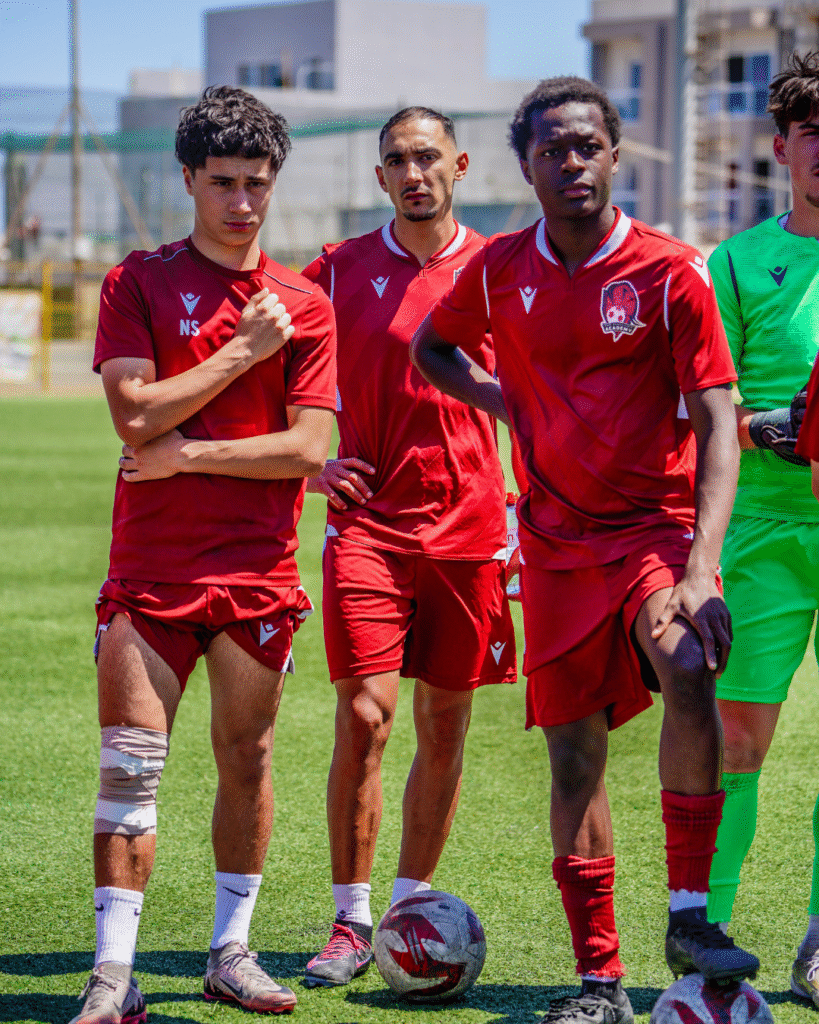Performance in football, often summed up as exceptional physical ability or impressive technical skills, is in fact based on a subtle balance between physical preparation and mental preparation.
While running faster, jumping higher or shooting more accurately can make a difference on the pitch, the ability to manage stress, make quick decisions and stay focused in high-pressure situations is just as crucial.
Summary
Understanding mental preparation
The mental preparation in football can be defined as all the strategies put in place to develop and make effective use of a player's psychological skills.
It aims to build capacity cognitive and emotional which have a direct impact on performance in the field.
The key elements of mental preparation
- Concentration: Being able to keep your attention on the game, despite external or internal distractions.
- Example: Ignoring the cries of the spectators to focus on your positioning during a crucial corner.
- Trust: Believe in your own abilities, even after a mistake or failure.
- Stress management: Control feelings of nervousness or fear at crucial moments (such as a penalty in the final).
- Visualisation: mentally imagine positive actions or scenarios to increase the chances of success.
These elements work together to put the players in an optimal state of mind, often referred to as «the zone».

The interaction between mental and physical preparation
The physical preparation and the mental preparation are intimately linked. One cannot be totally effective without the other, and neglecting the mental aspect can even limit the impact of the most rigorous physical training.
How does mental strength improve physical performance?
- Improved reaction time: Increased concentration reduces the time needed to respond to a situation or adjust an action.
- Effective decision-making under pressure: Proper stress management means you can make the right choice in a matter of seconds, even in chaotic environments such as decisive matches.
- Mental endurance: When the body starts to tire, motivation and mental resilience play a key role in maintaining performance levels until the final whistle.
Case studies
In a Champions League match, a physically tired player who can mentally refocus on his tactical tasks will be able to keep performing, rather than giving in to fatigue or inaccuracy.
Practical mental preparation techniques
The good news is that mental preparation can be developed with the help of specific exercises. Here are a few tried and tested techniques:
Visualisation exercises
- Objective: Improving confidence and preparing the brain to handle different match situations.
- Example: Close your eyes and imagine yourself scoring a perfect penalty, visualising both the gesture and the positive emotions associated with success.
Meditation and mindfulness
- Objective: Reducing anxiety, improving concentration and enhancing mental clarity.
- Example: Incorporate breathing exercises into your daily routine to calm the mind before a match.
Objective-setting strategies
- Objective: Staying motivated and having a clear direction.
- SMART Method: Define your objectives Specific:, Measurable:, Achievable:, Realists and Temporally defined.
- Example: «I want to improve my pass completion rate to 85 % over the next 5 games.»
Preparing for pressure
- Simulate tense match situations in training, such as taking a penalty with team-mates putting on the pressure. This gets the mind used to managing emotions and executing movements in realistic situations.
Overcoming mental barriers in football
Even the most talented players face mental challenges. Here are some common obstacles and how to overcome them:
Fear of failure
- Football is full of uncertainties, and failure can always seem imminent.
- Solution: Reinterpret failure as a learning opportunity. Every mistake is a chance to progress.
Maintaining confidence after a setback
- After an injury or a run of games without a win, it can be hard to feel up to the task.
- Solution: Focus on your past successes and practise positive affirmations before every training session or match.
Developing resilience
- Resilience is the ability to bounce back quickly from a difficult situation.
- Recommended exercise: After each match, make an objective analysis, identifying not only the mistakes, but also the progress made.

Conclusion
In conclusion, mental and physical preparation must work in perfect harmony. While the body performs complex actions, the mind acts as a silent guide, orchestrating movements and anticipating challenges. Players and teams who take the time to develop these two aspects gain an undeniable competitive advantage.
If you're looking to improve your mental approach to peak performance, start by incorporating these techniques into your training routine. Remember that football is as much a game of the mind as it is of the body.

